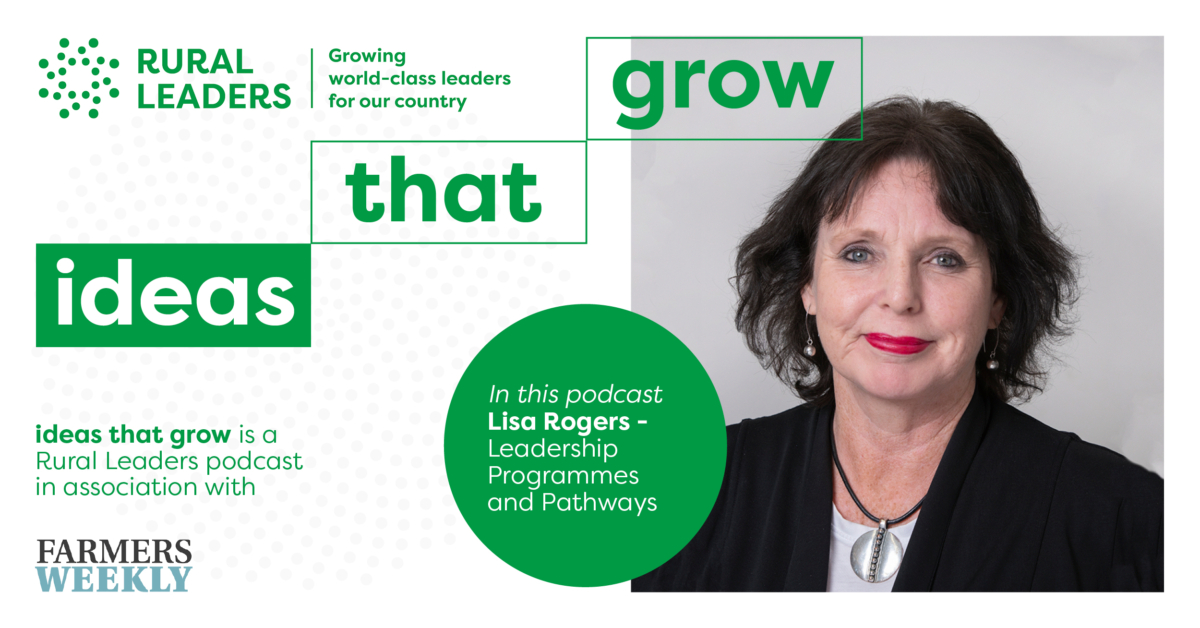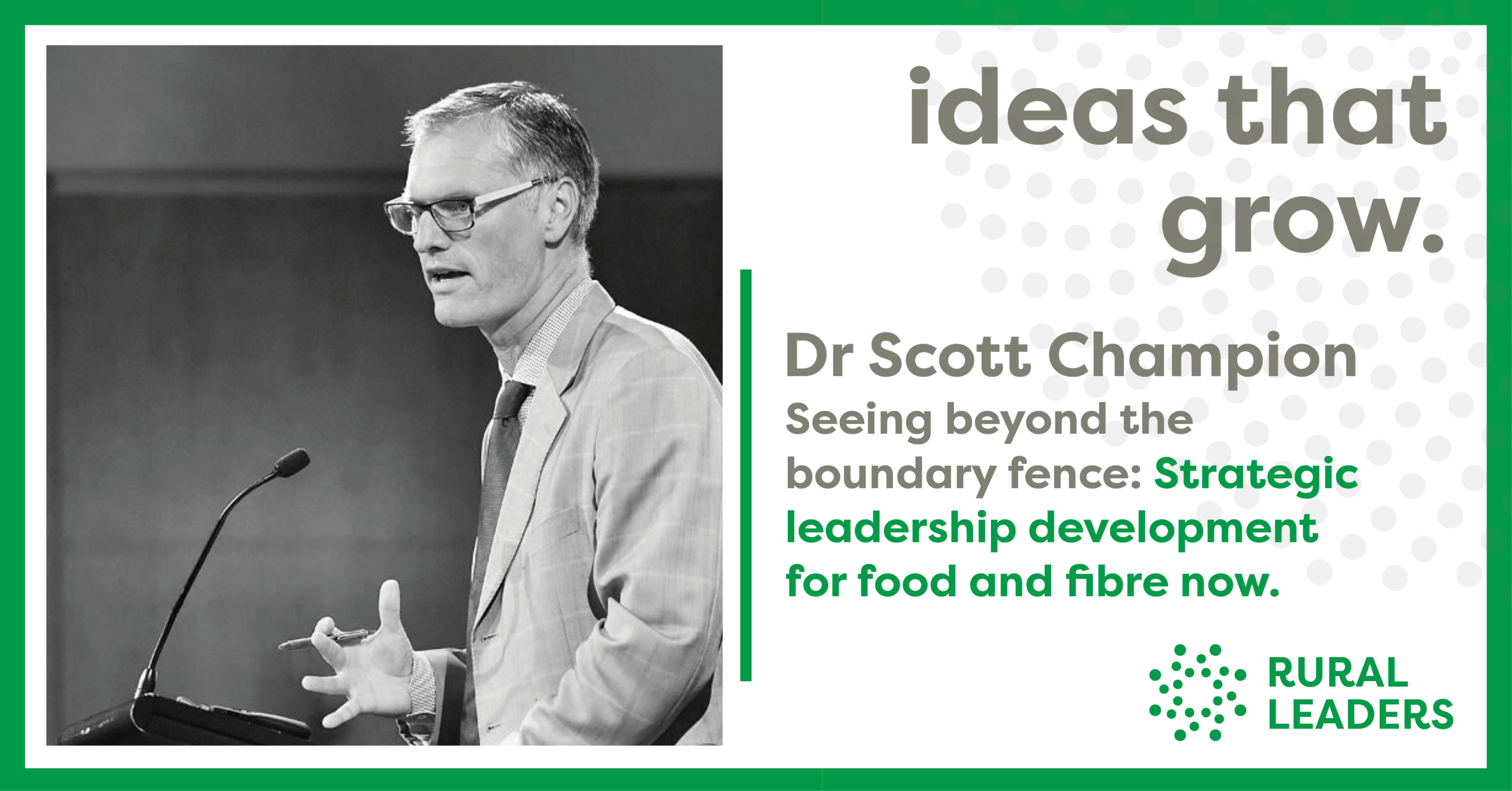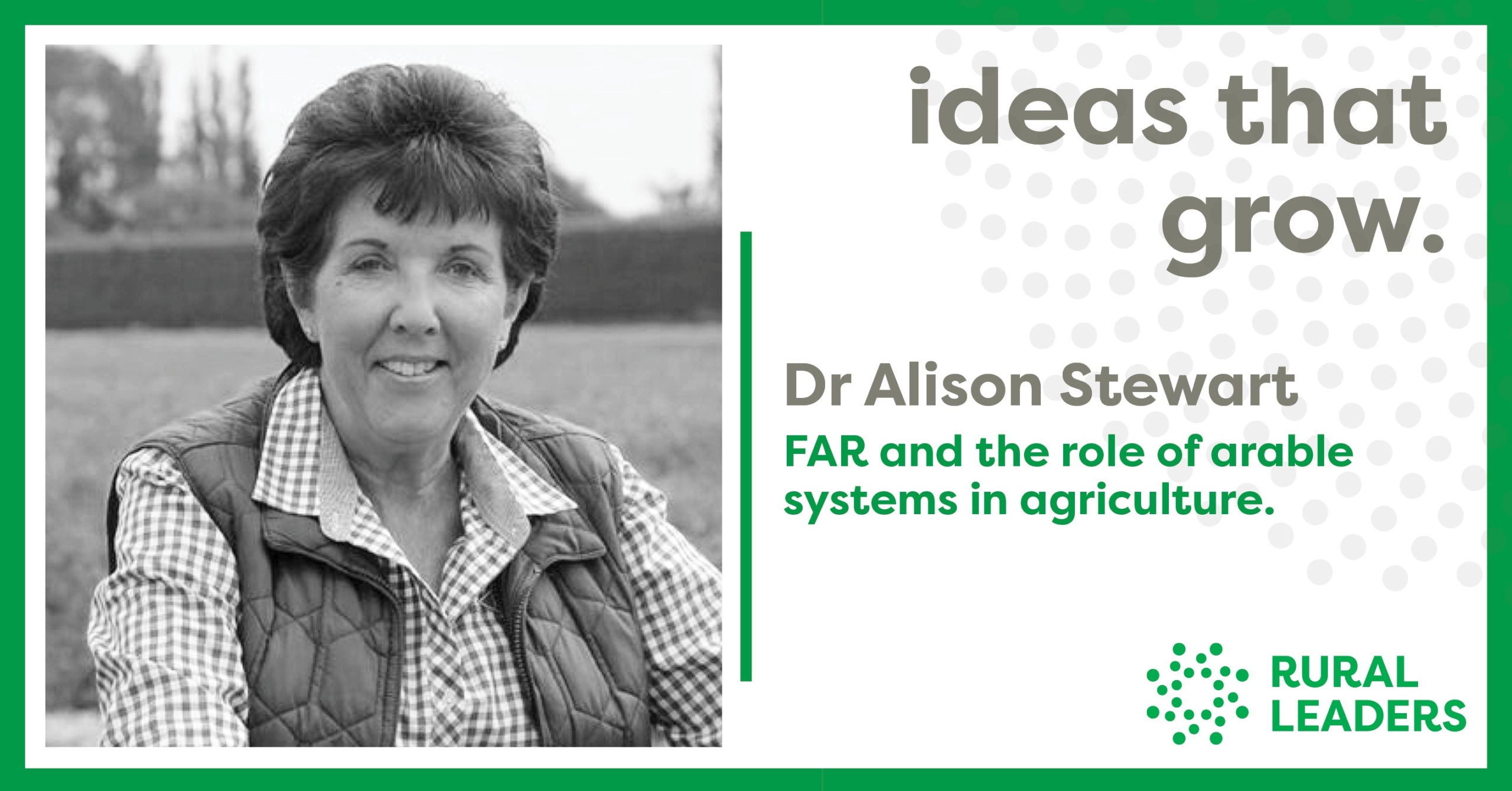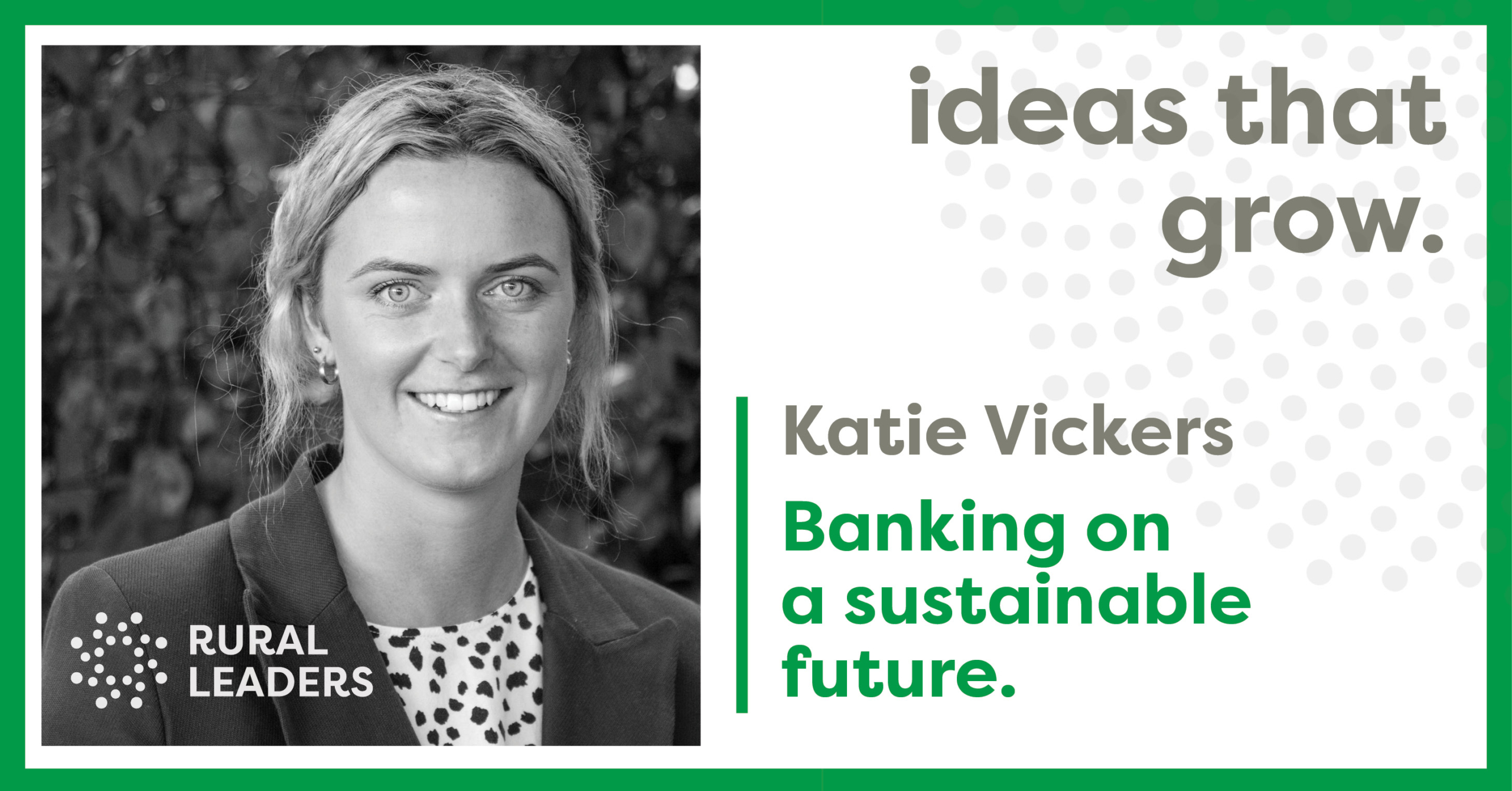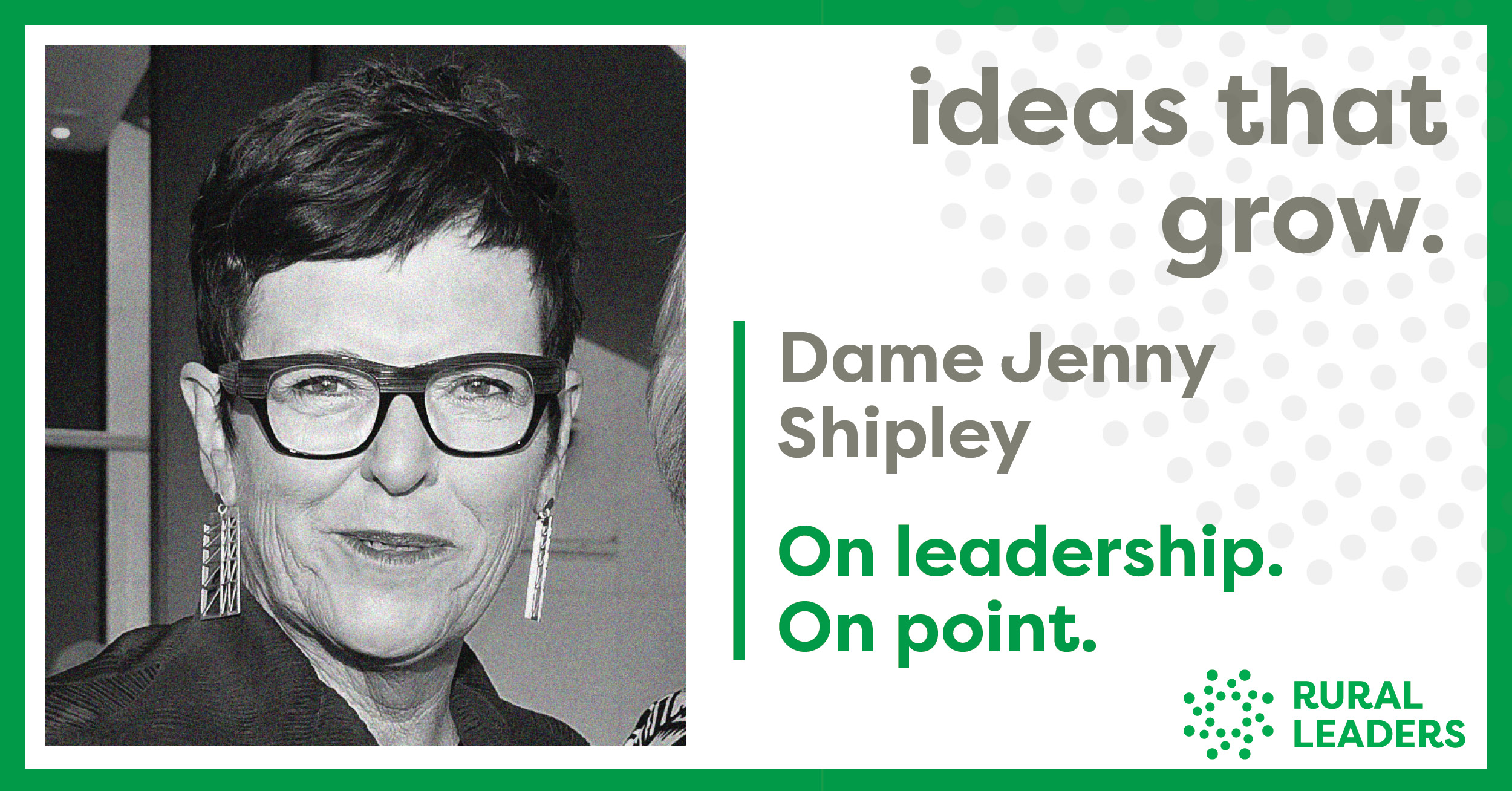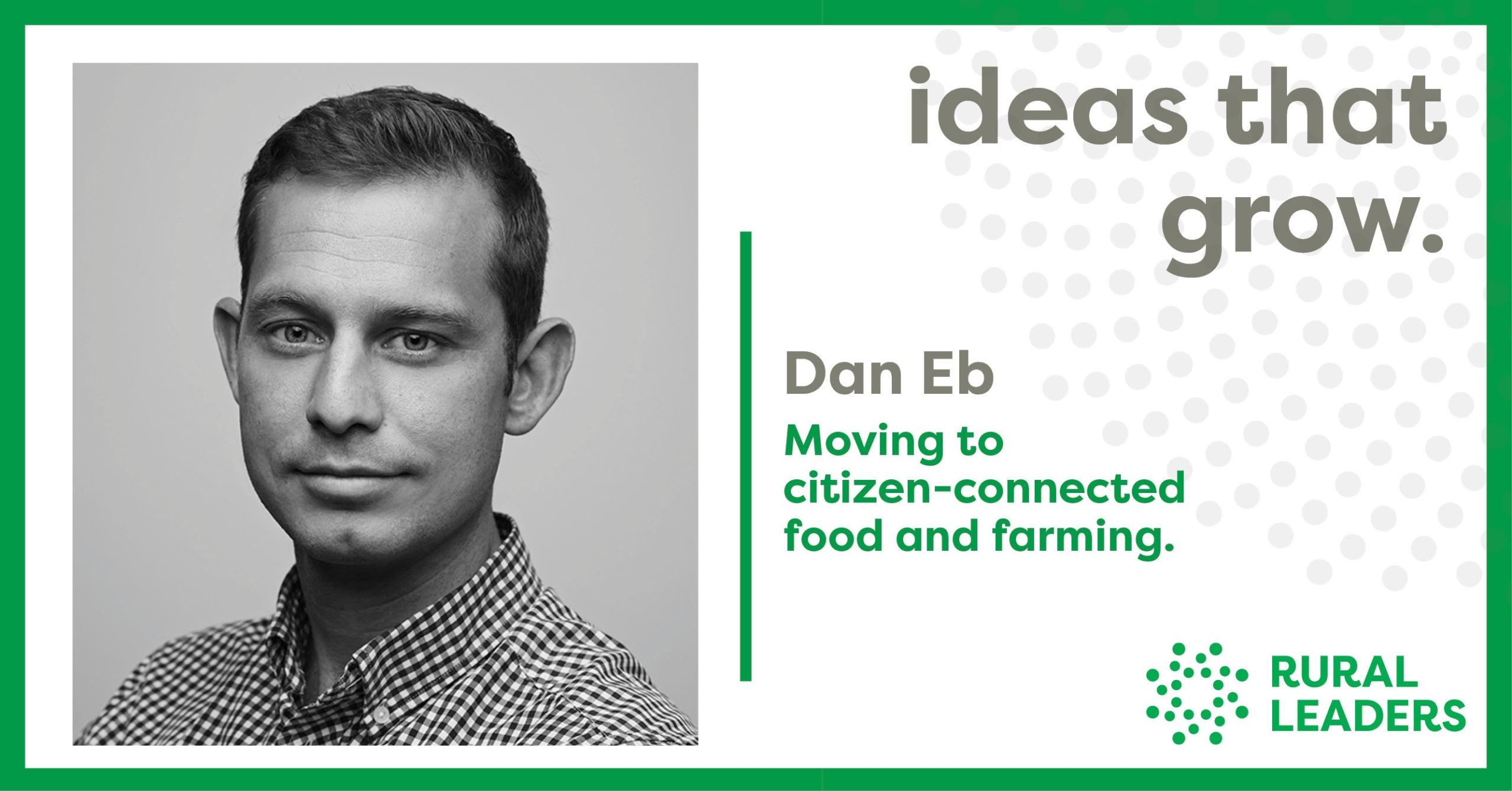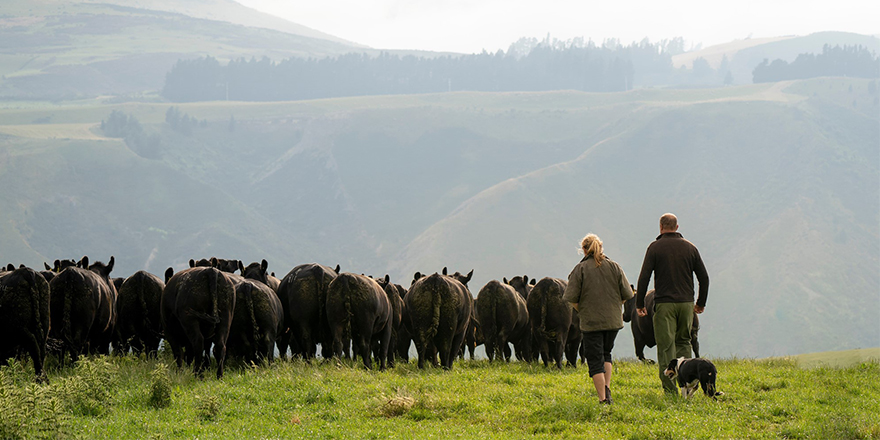If we believe the Food and Fibre sector has a Leadership challenge versus a Productivity challenge, then developing our sector’s leadership capability needs to be a priority.
In this podcast, Lisa Rogers, CEO, Rural Leaders talks to Bryan Gibson, Managing Editor, Farmers Weekly about the recently released report ‘A Path to Realising Leadership Potential in Aotearoa NZ’s Food and Fibre Sector’, along with its leadership development framework, and the leadership programmes serving as key tools for building more and ever greater leaders for our country.
Listen to Lisa’s podcast here or read the transcript below.
Bryan Gibson – Managing Editor of Farmer’s Weekly.
You’ve joined Rural Leaders’ Ideas That Grow podcast. In this series, we’ll be drawing on insights from innovative rural leaders to help plant ideas that grow so our regions can flourish. Ideas that Grow is presented in association with Farmers Weekly.
Bryan Gibson, Managing Editor of Farmers Weekly.
You’re with Ideas That Grow, the Rural Leaders podcast. I am Farmers Weekly Managing Editor, Bryan Gibson, and with me today is Lisa Rogers, Chief Executive of Rural Leaders. G’day Lisa, how’s it going?
Lisa Rogers, CEO, Rural Leaders
Great. Thanks, Bryan. It’s good to be here.
BG: Now, as we know, Rural Leaders is in the business of creating people who are primed to go into leadership roles. But recently, you’ve been involved in a big report on the state of leadership pathways in New Zealand is and how they might be improved. Can you tell me a little bit about that?
A new report that aims to help solve an old challenge.
LR: Yeah, sure. We’ve recently released a significant report in developing leaders in the Sector. It’s called a Path to Realising Leadership Potential in Aotearoa, New Zealand’s Food and Fibre Sector. We’re very proud of this piece of work that the authorship team has taken almost two years to bring together.
It was originally commissioned and supported by Food and Fibre CoVE – the Centre of Vocational Excellence. They commissioned Rural Leaders to conduct research into the state of leadership development in the sector and to also create a principles-based model towards leadership development. This report is now out. The report covers three main areas: Why we lead, how we lead, and how we are going to continue to grow leadership.
The idea is for this work to become a user guide, for want of a better word. And there is a framework that sits around it as well for people to be able to identify where they are on their leadership journey and to then look at what programmes and what a pathway might look like for their development, depending on where they are in their journey and their age and stage.
So, yeah, it’s a great piece of work.
BG: Obviously, when we think about leadership in the Food and Fibre sector, there are the likes of the Kellogg and Nuffield Programmes. There are other programmes out there, AgriWomen’s Development Trust, and there are various associate board member roles that various processes play. Do we have the infrastructure in place to succeed in building new leaders?
Leadership development programmes and pathways.
LR: I think there’s a great range of exemplars and programmes that are out there. The structure is the thing that’s been missing up until now. A lot of organisations and people have considered this over the years, and this is a foundational piece of work to be able to start creating an ecosystem system that we’re going to have.
It’s not going to necessarily be all about New Zealand Rural Leadership Trust. We want to be part of this, along with everyone else. So, what we’re wanting to do is get a great range of programmes that are there from early days or vocational type programmes. So, from first steps on their leadership development right through operations teams and into that strategic level of leadership as well, which traditionally, Kellogg and the Nuffield Scholarship have been in that later stage.
But we’re also developing and delivering new programmes as well. We’re very proud to be also involved in the Horticulture New Zealand Leadership Programme, which is in that operational space, and looking now at team leadership programme as well. Rural Leaders has got a lot of great programmes to be as exemplars of this leadership journey, but we also want to bring other organisations in to have their programmes there for delivery as well. They’ll obviously still belong to those organisations, but we want everyone to play in this space.
Horticulture New Zealand Leadership Programme, the Value Chain Programme and Engage.
BG: You mentioned the Horticulture New Zealand Leadership Programme, and of course, we know about Kellogg and Nuffield. What are some of the other programmes that Rural Leaders specifically has?
LR: Traditionally, we’re about leadership, and we still absolutely are. That’s our core purpose. But we are also increasingly moving into the capability space now and development of those leaders in the sector. We have the Value Chain Innovation Programme, which runs every year. It’s seven days going through to our iconic four big value chains.
It’s an amazing opportunity to do deep dives into the sheep and beef, the dairy, horticulture, and kiwi fruit industries, and understanding why they are such an important part of our sector, along with all the moving parts that go with that. There are always new changes, and that’s an incredible week with Professor Hamish Gow and Phil Morrison from down in Southland.
We also run a new programme called Engage, which is really starting to pick up a head of steam now. It started off as a joint venture with Lincoln University and Ministry for the Environment. It’s for people coming into this sector who have got great transferable skills but weren’t necessarily brought up in a farming or food and fibre environment. So, they have a three-day immersive programme with us, and we’re finding that that is becoming quite a go-to programme for us as well.
Rural Leaders is starting to build a real stable of programmes and become known as a leader development organisation more than anything else, which is so exciting.
BG: Obviously, the programmes that are out there and the support for people is a key aspect. But leadership is built in the workplace, isn’t it? In the relationships you have and the opportunities you’re given, maybe even when you’re just starting out in your career. We’ve mentioned the report. Are there other tools in the toolbox that can help workplace places develop their staff?
Rural Leaders provides tools for leadership development.
LR: Absolutely. So, the report is all about identifying that pathway. There’s a capability framework there. So, we want people to come in and have a look at this in a way that is accessible. So very shortly, we’re building a microsite, for want of a better word, so it’ll be mobile friendly.
It’s a way of having a look at where they are now on their journey. So, we assess, am I at the beginning of my leadership development? Have I been doing this for a while? Am I looking for a change? If I’ve been doing something for a while? And then actually ask a few more questions around that. And then this framework will give them some suggestions on programmes that they can be involved in now, some stuff they might like to look at in another year or two’s time, and then further out from there as well.
Again, it’s an independent assessment, so we’re not necessarily pushing them into all our programmes, although there’s some great opportunities there. But it might be that other organisations have got some great programmes around for them as well. And we certainly include the like of Muka Tangata as well and some of the WDC programmes that are out there – the Workforce Development Councils.
So, we’re also looking at how these can be micro-credentialed, so they give true value for the people who are undertaking them as well. We’re also looking at developing a high-performing teams programme. We see that as a real gap in the availability about being able to create an environment for thriving and high-performing teams.
BG: Identifying the people who have leadership potential and working with them is one thing. I guess Food and Fibre has often struggled to attract some of the talent to the sector from schools and that sort of thing; traditionally pushing people towards medicine, and law. How do we shift the dial there? Because the Food and Fibre sector is so important to New Zealand. It’s so big, in a sense. It really needs to have the best and brightest there, doesn’t it?
With good leadership, people stay.
LR: It sure does. When you think that there’s almost 360,000 people working in this sector now, and it’s worth over $55 billion a year in export income, it’s an incredibly important part of New Zealand’s economy. And up until now, one of the statistics that’s come out of this research is that the churn rate through the sector is something like 71% after three years. Now, that’s extraordinary. Even if you take into consideration seasonal workers, RSC workers coming into the country to work, particularly in horticulture, that’s just mind boggling to think that 71% of people are gone after three years.
The cost to the economy of that, for each time somebody turns over out of a job is just extraordinary. What we need to do is make sure that we can address this and have people who come into the sector and want to stay. To feel like they’ve got some path to grow and develop in there, and that there is a long-term view for them.
Now, it can be in all sorts of aspects of the sector. It doesn’t have to be necessarily a path towards farm ownership, because we want this report, and the framework, to apply to people working in the Food and Fibre service industries as well as on farm or on an orchard.
It’s as applicable to anybody who is an owner or an employer as it is to someone who’s a worker. We want everyone to be able to see themselves in here and look at this framework that we’re putting forward and say, this is where I see myself now, these are the things I’d like to think about developing myself, in particular, my leadership. Once we’ve got people who are feeling as though they have got a purpose and a pathway in front of them, we’re more likely to see a more settled and productive workforce sitting there. We see that this has got huge economic as well as social benefits for the sector.
For more information on Rural Leaders, the Nuffield New Zealand Farming Scholarships, the Kellogg Rural Leadership Programme, the Engage Programme, or the Value Chain Innovation Programme, please visit ruralleaders.co.nz
